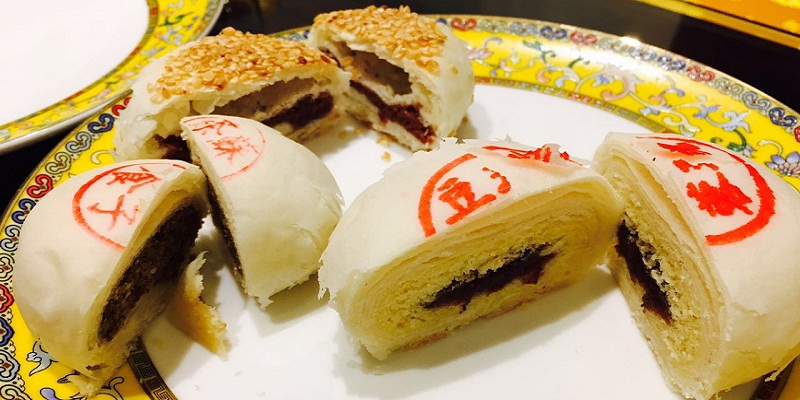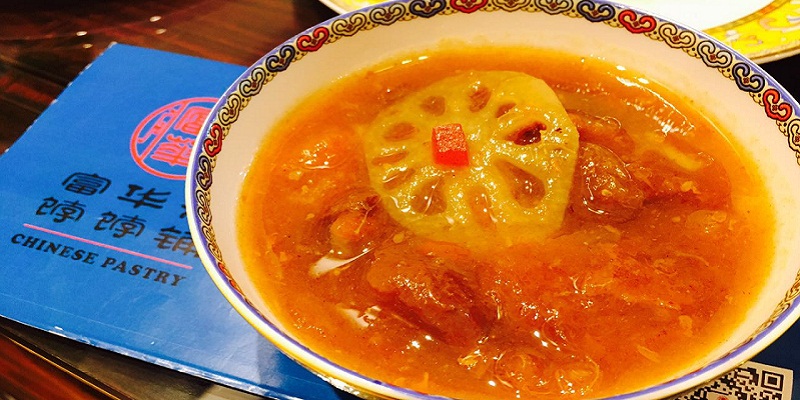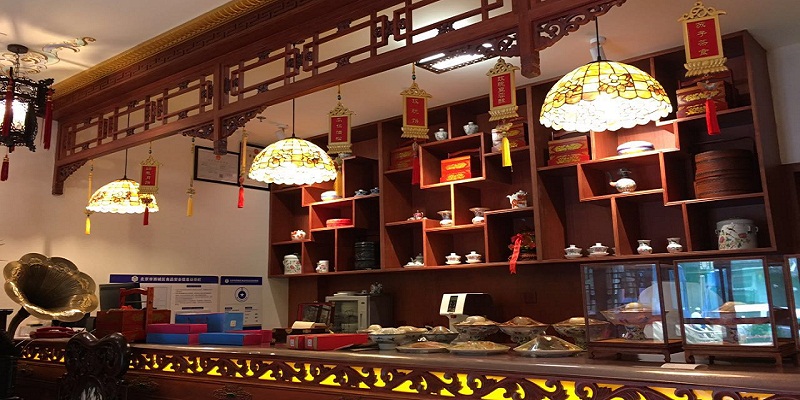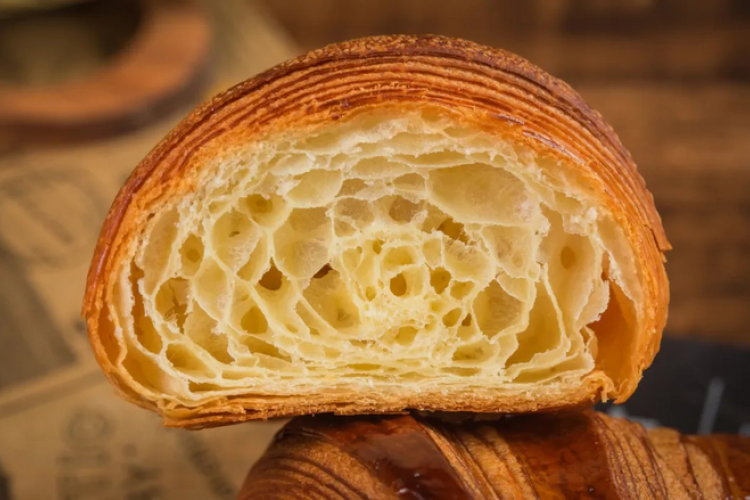Fuhuazhai Chinese Pastry Shop Brings us Back to the Qing Dynasty with Traditional Royal Manchu Taste
Everyone likes pastries for their alchemy of fat, flour and air, no matter civilians or royalty. When we talk about Chinese pastries, one name stands above the rest: Daoxiangcun.
Daoxiangcun started in Suzhou in 1773, when the Qianlong Emperor, the sixth emperor of the Qing dynasty, visited the south and praised the pastries at Daoxiangcun in Suzhou. The first Beijing Daoxiangcun was opened in 1895. Therefore, technically, Daoxiangcun is a flavor of Suzhou, but popular among Beijing locals.
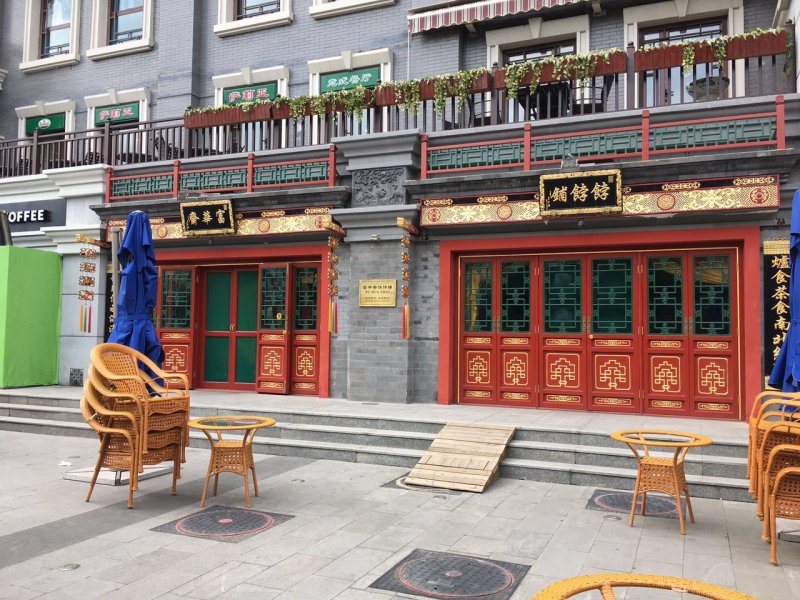
Bobo is a Manchurian word, originally referring a pastry made of millet, corn and sorghum flour, savory or sweet. After the Manchu people reigned over China during the Qing dynasty, they also brought many Manchurian pastries, such as rolling donkeys (lǘ dagǔn, 驴打滚), glutinous rice rolled in soy bean flour; or sachima (sāqímǎ, 萨其玛), strands of fried batter with sugar syrup. There were bobo shops all over big cities during the Qing dynasty, providing Jīng bājiàn (京八件, eight desserts created by the Qing Imperial kitchen) not just to enjoy at home, but also to be used in weddings, funerals, and sacrifices. The Jīng bājiàn can still be found at Daoxiangcun, and are still given as gifts to relatives.

And this concludes our history lesson for the day.
Fuhuazhai Chinese Pastry Shop, or Fuhuazhai bobo restaurant, was founded by Wang Xifu, whose grandfather was an imperial chef in the Qing imperial kitchen. Today, the whole family is working in the food industry. After retirement, Wang hunted for ancestral recipes and restored the classic flavors of the pastries that royals once enjoyed in the palace. The shop opened on the first floor of Huguo Xintiandi half a year ago, facing the People’s Theatre and next to the soon-to-open Starbucks. The façade looks like a miniature Forbidden City, with the crimson wooden doors, green frames, and the name written in gold on a black plaque. Inside, there are 15 different varieties of Chinese pastries displayed on the rosewood table. Customers order at the rosewood table, pay, get a number, then find a place either in the main room with the traditional armchairs, kang (a wooden bed with table and cushions in bright yellow), or any of several marble tables in the other room.

For the sweetest of teeth, most of the pastries can be bought by piece, so it’s not a big challenge to have a taste of everything and decide on your favorite. Our verdict? The best is méiguī dòuróng sū (玫瑰豆蓉酥, RMB 12), a flaky pastry with soft rose bud and mung bean fillings — subtle and smooth, but never too sweet — in the center.
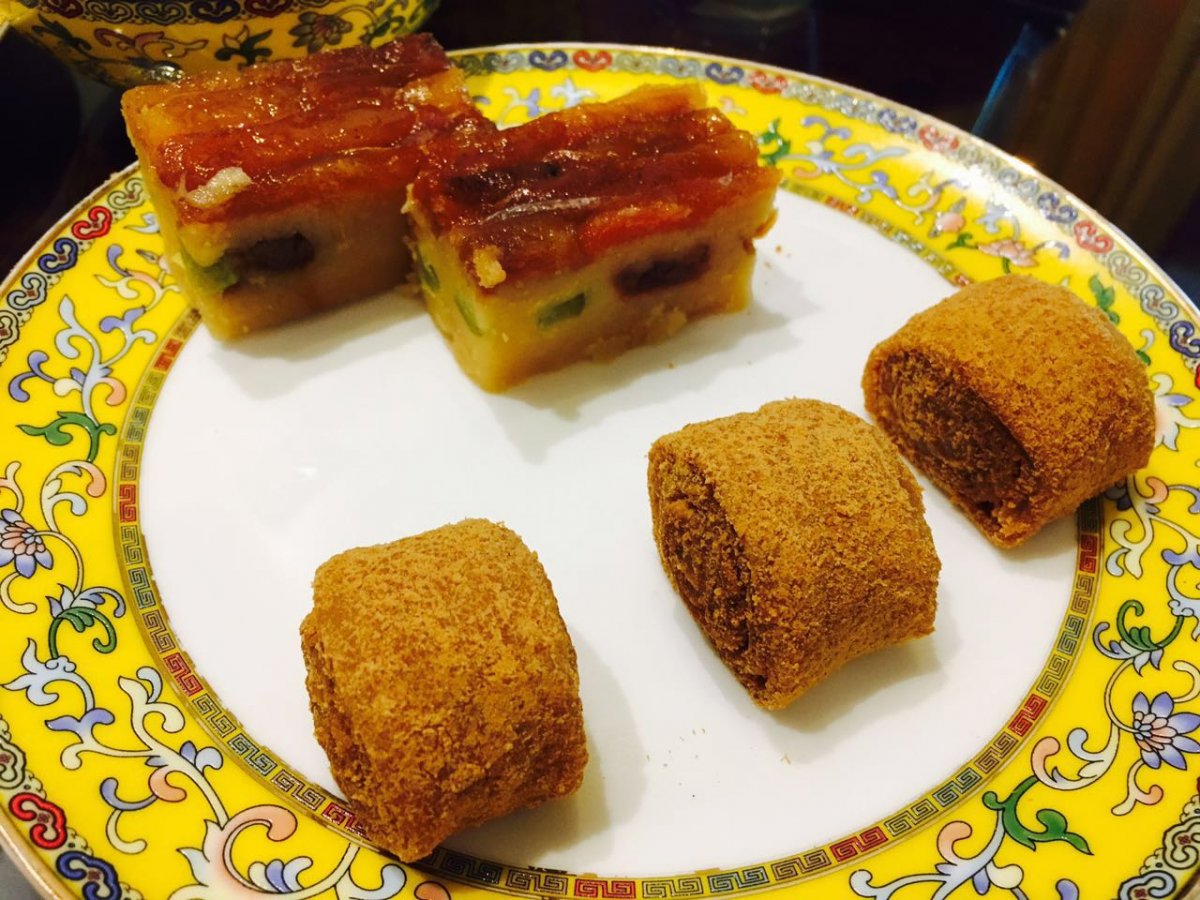
We also like the rolling donkeys (lǘ dagǔn, 驴打滚, RMB 12 for six pieces or RMB 6 for three pieces). They are cut into bite-sized servings of steamed glutinous rice layered with brown sugar and then covered with soy bean flour. If you like pea cake (wāndòu huáng, 豌豆黄), try the rendition here, wāndòu gāo (豌豆糕, RMB 19 for four pieces). Aside from the normal smooth texture of the cake made from mashed peas and mixed with sugar, this bakery adds preserved fruits with layers of dried persimmon cake, bringing the flavor to another level.
If you prefer the savory treats, try the sūzǐ cháshí (苏子茶食, RMB 6 per piece), which is made of shiso fruits mixed with black sesame. It was, in the past, served in the palace with tea.
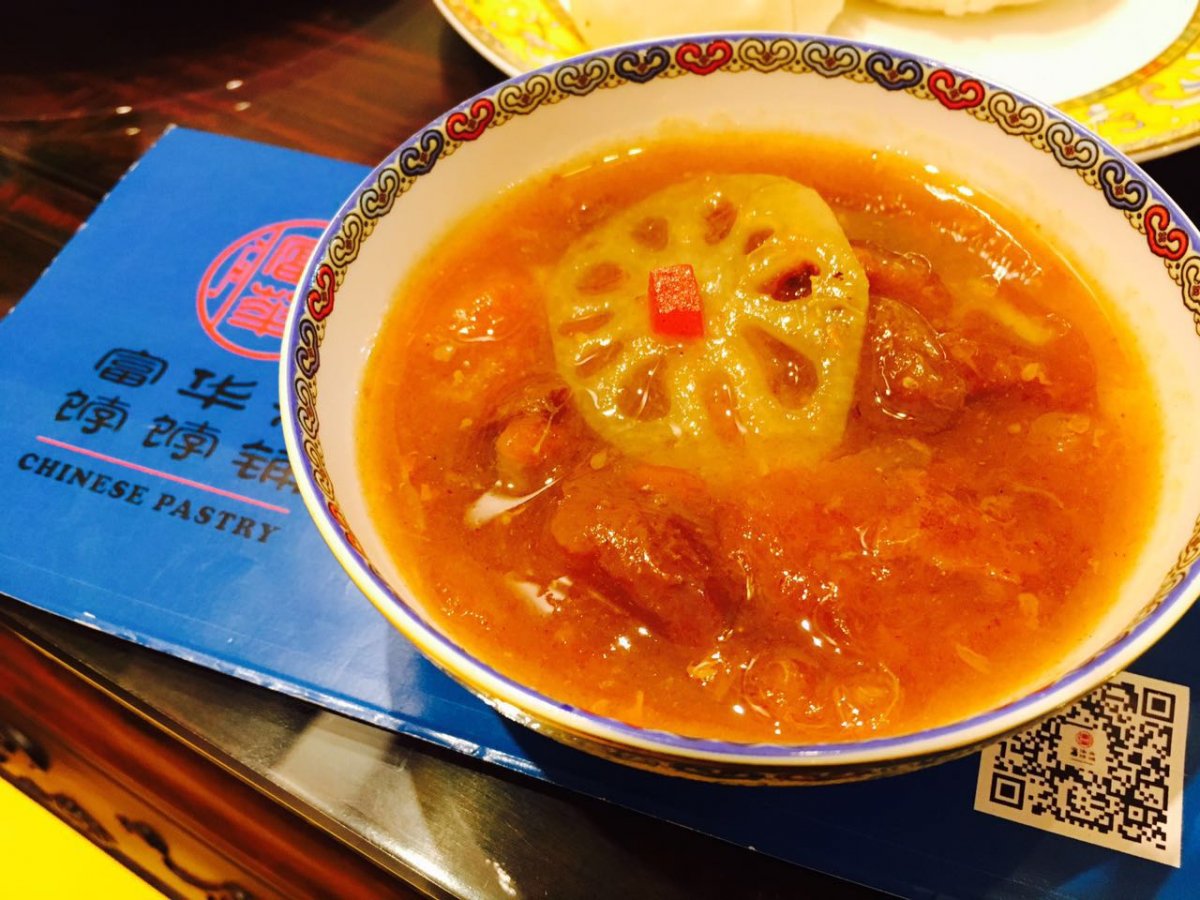
There are three dessert soups to choose from, which are similar to the Cantonese Tongsui (sweet soup), such as xīguā lào (西瓜酪), made with steamed milk and covered in watermelon jelly. We recommend the guǒzi lào (果子酪, RMB 18), a bowl of preserved apricot and dried persimmon cake, with slices of pear and lotus in it, and nǎilào guǒzi bīng (奶酪果子冰, RMB 18), is steamed milk with walnuts, raisins, and a scoop of strawberry sorbet, flavored by laozao (fermented glutinous rice). The shop also serves black tea, green tea and yunnan pu’er tea, ranging from RMB 88-188 a pot.
Service was impeccable, the staff treated us with the utmost respect — a monument to their legacy of royal service. Sitting on the traditional kang that had served generations of people, listening to the traditional music of Chinese classic instruments, I felt spirited back in time and connected to my Manchu ancestors. The crimson door and green screen shielded this historical experience inside from the bustling, modern world outside.
Daily 9am-9pm. 1/F, Huguo Xintiandi, No.85 Huguosi Dajie, Xicheng District (8322 9001)
富华斋饽饽铺:西城区新街口街道护国寺街85号护国新天地一层
More stories by this author here.
Email: tracywang@thebeijinger.com
Twitter: @flyingfigure
Instagram: @flyingfigure
Photos: Tracy Wang

